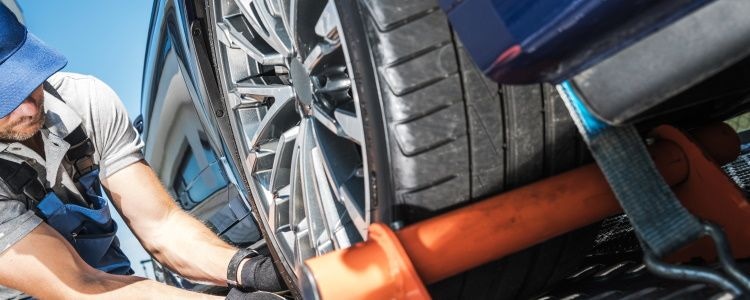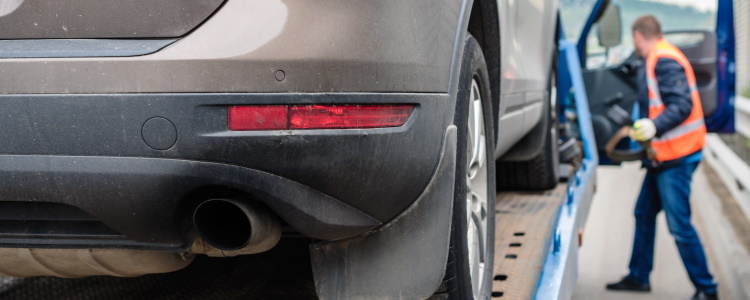Dealing with car repossession is tough. If you’re facing a repo, you should be aware of what your rights are, and what the recovery company can and can’t do to you and your vehicle.
Your Car Repossession Rights
In most states, your lender has the right to repossess your car without notice if the loan is in default. Some lenders send notices out prior to a repossession, but most take matters into their own hands by locating your vehicle and taking it on their own terms with the help of a recovery service.
There are limitations for what a lender and recovery company can and can’t do. These limitations include three things:
- Property must not be damaged – The repo man can’t breach the peace, or force themselves onto private property to claim the car. A common example is if you keep your vehicle parked in a closed garage. If the garage is closed, the repo man can’t forcibly breka in to take the car away. However, if it’s parked in the driveway or on the street, they can seize it.
- You can’t be assaulted – This includes verbal and physical assault, and is another form of breaching the peace.
- The recovery company can’t keep personal items – If the recovery company seizes your vehicle and you left personal items inside, they’re not allowed to keep them. They must give them back to you. If they don’t, they’re breaching the peace again.
If you’re unsure about your legal rights during a repossession, you should reach out to a lawyer.
Can I Get My Car Back after a Repo?
If your car is repossessed, you have the right to try and get it back. It isn’t always easy to do, but you have three options to consider when it comes to getting your vehicle back following a repo:
 Redeem the car – To redeem your vehicle, you must pay the entire balance due on the loan plus any repossession, storage, and attorney fees. Law requires lenders to send you a notice that lays out your right to redeem within five days of the repossession. This letter should include the total amount due and how long you have to redeem the car.
Redeem the car – To redeem your vehicle, you must pay the entire balance due on the loan plus any repossession, storage, and attorney fees. Law requires lenders to send you a notice that lays out your right to redeem within five days of the repossession. This letter should include the total amount due and how long you have to redeem the car.- Reinstate the loan – Not all states allow this, but you may be able to reinstate the loan. This means bringing the loan current by paying all amounts past due, plus fees, in one lump sum. Typically, you have 15 days to reinstate a loan, but the notice your lender sends you about your right to reinstatement should tell you exactly how long you have. It also tells you the amount needed to make the loan current.
- Buy it back at auction – If your vehicle goes to auction, you’re allowed to attend and bid on the car. Keep in mind that if you do successfully buy it back, you’re responsible for the deficiency balance not covered by the sale, which includes repossession fees.
If these three options don’t work, and you find yourself struggling financially across the board – and not just with your auto loan – the last resort option could be to file for bankruptcy. Filing for bankruptcy is a big deal, and should be taken seriously – don’t file just because you can’t pay for a car loan.
The Bottom Line
Repossession isn’t pretty, but you have some rights that should be respected and followed by your lender and the recovery company. We’re not legal experts, and if you’re unsure about something, please reach out to your lawyer for further clarification.
If you already went through repossession, and need a new vehicle, we want to help you find a dealership to work with. At Auto Credit Express, we’ve been helping consumers who are dealing with bad credit issues – including repossession – find financing for over 20 years.
We can connect you to a special finance dealer in your area that has the lenders willing to handle bad credit situations. Getting started is easy! Just fill out our free auto loan request form, and we’ll get right to work for you.
















